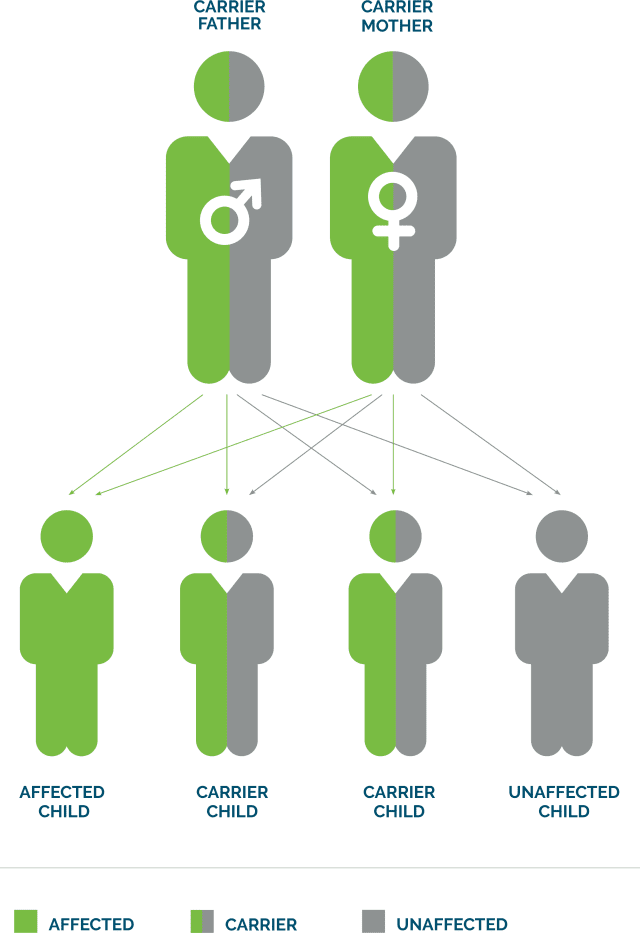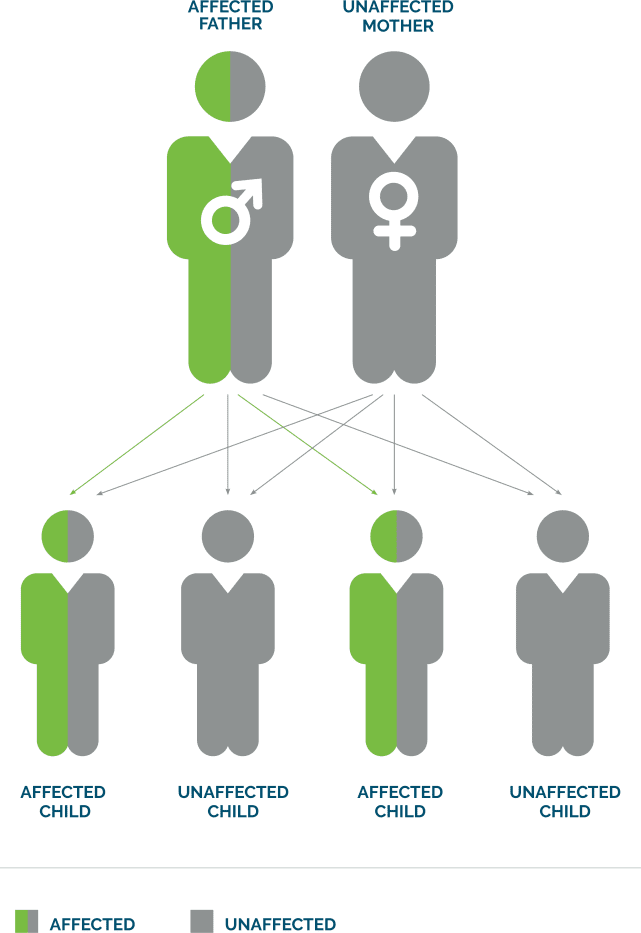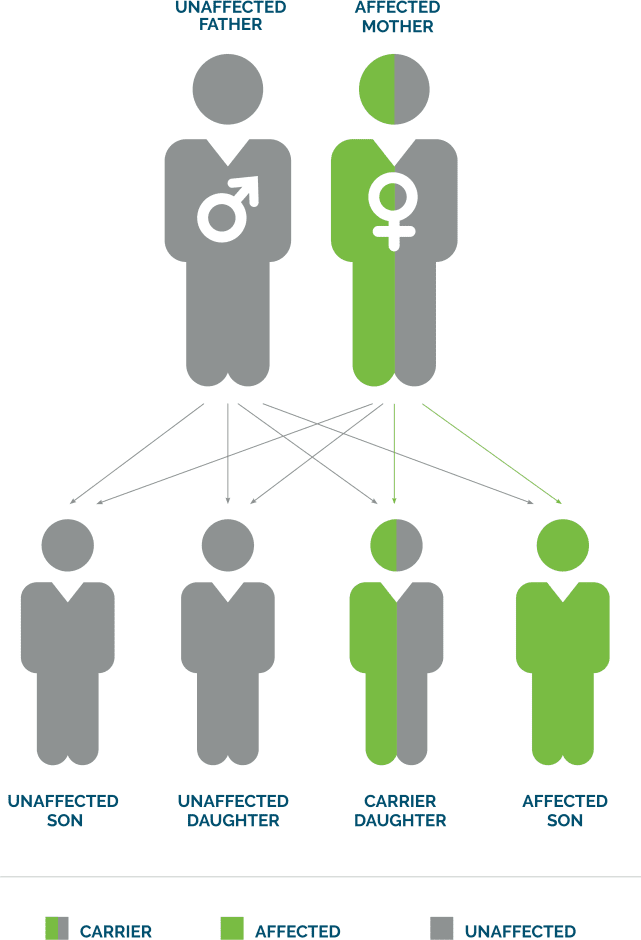
Preconception Testing in Boca Raton & Aventura
Assessing Your Risk for Inheritable Genetic Diseases
Our mission at Palm Beach Fertility Center involves making every effort to help you get pregnant and have a healthy baby. Advanced reproductive technology and genetic testing give us the ability to identify barriers and pave the way for successful conception. One of these valuable tools we use is preconception carrier testing, which provides a clear picture of the risks for passing along inheritable genetic diseases.
Who Needs Preconception Testing?
As both a scientist and a father himself, Dr. Mark Denker recommends preconception genetic testing for any couple preparing to start a family. The relatively inexpensive test involves a blood or saliva sample and provides comprehensive conclusions about what is contained in your DNA. You can learn your carrier status for over 100 inheritable diseases.
Testing for Specific Genetic Diseases
While anyone can benefit from genetic testing, certain situations necessitate it. For example, cystic fibrosis affects white and Ashkenazi Jewish couples. Black couples are at risk for having babies with sickle cell disease, and Jewish women of European descent are susceptible to passing on Tay-Sachs disease. Anyone with family ties to the Mediterranean, Africa, or Far East Asia will benefit from preconception genetic testing.
We will likely recommend preconception carrier testing when one or more of the following conditions are met:
- You have a child with a genetic disease
- You have a known family history for inheritable gene disorders
- Your ethnicity or country of origin puts you at risk for genetic disease
- You are a woman under 40 with an elevated follicle-stimulating hormone level
If you are interested in preconception testing, contact our office to schedule a consultation.
Recessive Genetic Disease
A recessive genetic disease occurs when both copies of a particular gene have pathogenic variants. If you have one copy of a gene with a variant and one normal copy of that same gene, you are considered a "carrier" for that recessive genetic disease even though you are not affected by that disease.
In order for carriers to pass on a recessive gene, both partners would have to be carriers of the same genetic disease.

Dominant Genetic Disease
A dominant genetic disease occurs when one of the two copies of a particular gene has a pathogenic variant. Only one of the copies of the gene needs to have a pathogenic variant in order for an individual to be affected by a dominant genetic disease (recessive diseases require both copies to have variants). If either you or your partner have a dominant genetic disease, you run a 50% risk of having a child affected by that genetic disease.

X-Linked Disorders
The X and Y chromosomes (often called the sex chromosomes) determine whether a baby is male or female. Males have one X and one Y, while females have two X chromosomes. Some disorders are caused by variants or alterations of the X chromosome. Generally, if a woman has a pathogenic variant on one of the genes located on an X chromosome, she is considered a carrier — and has a 50% chance of passing that variant onto her children. If she passes on the variant on to a male child, that child can be affected with the condition. Affected males will not pass the variant onto their sons, but daughters of affected males will be carriers of the variant. Female carriers rarely develop symptoms of the condition but their daughters have a 50% chance of being carriers.

We use comprehensive genetic carrier screenings which include:
- 3-Phosphoglycerate Dehydrogenase Deficiency
- ABCC8-Related Hyperinsulinism
- Abetalipoproteinemia
- Achromatopsia
- Alkaptonuria
- Alpha Thalassemia
- Alpha-Mannosidosis
- Alport Syndrome, Autosomal Recessive
- Andermann Syndrome
- ARSACS
- Arthrogryposis, Mental Retardation, and Seizures (AMRS)
- Aspartylglucosaminuria
- Ataxia With Vitamin E Deficiency
- Ataxia-Telangiectasia
- Autosomal Recessive Polycystic Kidney Disease
- Bardet-Biedl Syndrome, BBS1-Related
- Bardet-Biedl Syndrome, BBS10-Related
- Beta Thalassemia
- Biotinidase Deficiency
- Bloom Syndrome
- Canavan Disease
- Carnitine Palmitoyltransferase IA Deficiency
- Carnitine Palmitoyltransferase II Deficiency
- Cartilage-Hair Hypoplasia
- Choroideremia
- Classic Citrullinemia
- CLN3-Related Neuronal Ceroid Lipofuscinosis
- CLN5-Related Neuronal Ceroid Lipofuscinosis
- Cohen Syndrome
- Congenital Amegakaryocytic Thrombocytopenia
- Congenital Disorder of Glycosylation Type Ia
- Congenital Disorder of Glycosylation Type Ib
- Congenital Finnish Nephrosis
- Costeff Optic Atrophy Syndrome
- Cystic Fibrosis
- Cystinosis
- D-Bifunctional Protein Deficiency
- Dihydrolipoamide Dehydrogenase Deficiency
- Dyskeratosis Congenita, Autosomal Recessive
- Ehlers-Danlos, Type VIIC
- Factor XI Deficiency
- Familial Dysautonomia
- Familial Mediterranean Fever
- Fanconi Anemia Type C
- Fragile X
- Galactosemia
- Gaucher Disease
- GJB2-related DFNB1 Nonsyndromic Hearing Loss and Deafness
- Glucose-6-Phosphate Dehydrogenase Deficiency
- Glutaric Acidemia Type 1
- Glycogen Storage Disease Type Ia
- Glycogen Storage Disease Type Ib
- Glycogen Storage Disease Type III
- Glycogen Storage Disease Type V
- GRACILE Syndrome
- Hereditary Fructose Intolerance
- Hereditary Thymine-Uraciluria
- Homocystinuria
- Hurler Syndrome
- Hypophosphatasia, Autosomal Recessive
- Inclusion Body Myopathy 2
- Isovaleric Acidemia
- Joubert Syndrome 2
- Krabbe Disease
- LAMA3-Related Junctional Epidermolysis Bullosa
- LAMB3-Related Junctional Epidermolysis Bullosa
- LAMC2-Related Junctional Epidermolysis Bullosa
- Limb-Girdle Muscular Dystrophy Type 2D
- Limb-Girdle Muscular Dystrophy Type 2E
- Long Chain 3-Hydroxyacyl-CoA Dehydrogenase Deficiency
- Maple Syrup Urine Disease Type I
- Medium Chain Acyl-CoA Dehydrogenase Deficiency
- Megalencephalic Leukoencephalopathy With Subcortical Cysts
- Metachromatic Leukodystrophy
- Mucolipidosis IV
- Multiple Sulphatase deficiency
- Muscle-Eye-Brain Disease
- NEB-Related Nemaline Myopathy
- Niemann-Pick Disease Type C
- Niemann-Pick Disease, SMPD1-Associated
- Nijmegen Breakage Syndrome
- Northern Epilepsy
- Pendred Syndrome
- PEX1-Related Zellweger Syndrome Spectrum
- Phenylalanine Hydroxylase Deficiency
- Polyglandular Autoimmune Syndrome Type 1
- Pompe Disease
- PPT1-Related Neuronal Ceroid Lipofuscinosis
- Primary Carnitine Deficiency
- Primary Hyperoxaluria Type 1
- Primary Hyperoxaluria Type 2
- PROP1-Related Combined Pituitary Hormone Deficiency
- Pycnodysostosis
- Retinitis Pigmentosa 59
- Rhizomelic Chondrodysplasia Punctata Type 1
- Salla Disease
- Segawa Syndrome
- Short Chain Acyl-CoA Dehydrogenase Deficiency
- Sickle Cell Anemia
- Sjogren-Larsson Syndrome
- Smith-Lemli-Opitz Syndrome
- Spinal Muscular Atrophy
- Steroid-Resistant Nephrotic Syndrome
- Sulfate Transporter-Related Osteochondrodysplasia
- Tay-Sachs Disease
- TPP1-Related Neuronal Ceroid Lipofuscinosis
- Tyrosinemia Type I
- Usher Syndrome Type 1F
- Usher Syndrome Type 3
- Very Long Chain Acyl-CoA Dehydrogenase Deficiency
- Walker-Warburg
- Wilson Disease
- X-Linked Juvenile Retinoschisis
Fertility Treatment to Address Single Gene Disorders
If you have tested positive for a single gene disorder, we are here to explain the odds of passing along the recessive gene when you get pregnant. Both you and your partner will need to be tested to fully assess the risk. At Palm Beach Fertility Center, we offer targeted treatment to help you protect the next generation, as we want to ensure that you have a healthy pregnancy and give birth to a healthy baby.
Thanks to DNA mapping and advances in genetic testing, we have reduced the occurrence of inherited conditions by 90%.
Dedicated Fertility Specialist in Boca Raton & Aventura
If you are seeing Dr. Mark Denker, it means you are committed to maximizing your chances for getting pregnant, and you are a suitable candidate for preconception testing. Information that preconception testing provides can help you avoid passing along a genetic disorder to your baby. Our IVF lab and experienced reproductive endocrinologist can provide you with options to prevent passing along genetic diseases.
Call us today at (888) 819-5177 to schedule an appointment with Dr. Mark Denker.
Unique as Your DNA
Anyone trying to conceive without success knows that infertility can consume your life. Dr. Mark Denker, M.D., R.E., and the compassionate team at Palm Beach Fertility Center understand that nothing matters more to you than building a family. We devote ourselves to helping resolve infertility with individualized care that produces optimal results.
About Palm Beach Fertility